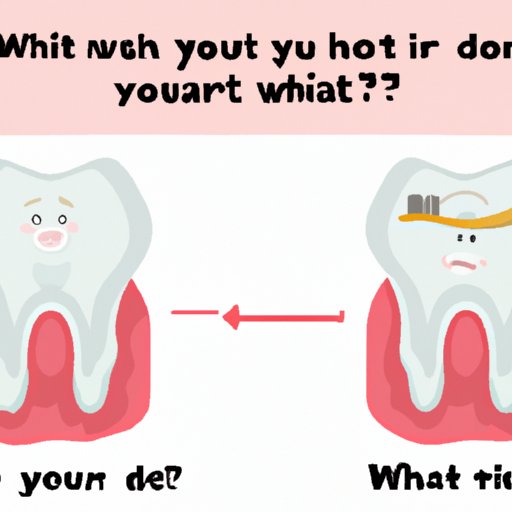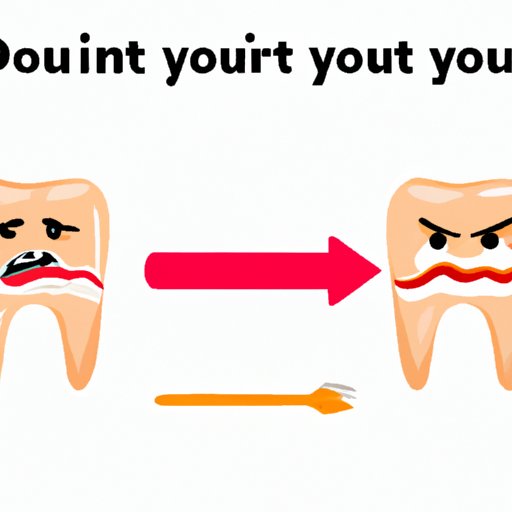Introduction
Most people take brushing their teeth for granted, but do you know what happens if you don’t brush your teeth? Reports suggest that nearly 31% of adults ages 20-44 have untreated tooth decay and poor oral hygiene happens to be the leading cause of many dental problems. This article provides an overview of what happens when you don’t brush your teeth regularly and the associated health and social implications.
Science behind tooth decay
Tooth decay is a common dental problem that occurs when bacteria ferment carbohydrates in the mouth to produce acid, which then damages the tooth structure. If left untreated, cavities, gingivitis, and gum disease can occur and require more extensive treatment. When you don’t brush, it becomes easier for bacteria to accumulate and produce acid which further damages teeth and gums. This can eventually lead to tooth loss if the problem is not addressed immediately. Therefore, brushing and flossing regularly work wonders in fighting against bacteria and removing food particles.
Further complicating things is the fact that bacteria can affect more than just your oral health. Studies suggest a correlation between oral health and other serious health conditions, which brings us to our next section.
Health implications of not brushing
Poor oral health is linked to other medical conditions like heart disease, stroke, and respiratory infections. This happens when the bacteria responsible for tooth decay enters the bloodstream and attacks other organs. Though further research is required, in extreme cases this can be fatal. Furthermore, dental problems can cause digestive issues and affect the immune system, leading to a decreased ability to fight infections. It is best to maintain good oral health to avoid these possible health issues.
Social consequences
The impact of poor oral hygiene is not just limited to your medical wellbeing—it can also affect you socially. Bad breath and yellowing teeth, among other things, can lead to a lack of self-esteem and lack of confidence. This can affect social and professional interactions. Some people avoid smiling or speaking in public because they are self-conscious about the state of their teeth. Therefore, it is important to prioritize dental care to prevent these negative consequences from happening.

Establishing good oral hygiene habits
Establishing good oral care habits is crucial to maintaining the proper health of teeth and gums. Brushing using a pea-sized amount of toothpaste twice daily and flossing once daily helps remove leftover food particles and plaque which otherwise can harm teeth. Mouthwash is also a good option to prevent the accumulation of bacteria and bad breath. Good oral hygiene should be encouraged from a young age and made a habit consistently.
Dental check-ups are essential to ensure ideal oral health over time. Dentists recommend visiting at least twice a year, though this may vary depending on individual needs. During a dental visit, a dentist can check for any problems and advise on proper brushing, flossing, and any other dental care habits that need to be instilled.
Overcoming common barriers
Maintaining good oral hygiene habits can be challenging for many people. Busy schedules, lack of motivation, and forgetfulness are common barriers to keeping up with proper oral care. To overcome these barriers, it is important to start by setting goals and making a conscious effort to stick to a routine. Investing in oral care products that you enjoy using can also help you stay motivated. When you come up with a plan that works for you, it will be easier to instill good oral care habits in the long run.
Conclusion
Overall, not brushing your teeth regularly can have multiple negative consequences on your health and social life. Adopting good oral care habits and sticking to them is the key to preventing these negative consequences and maintaining healthy teeth and gums. So, prioritize your oral care routine, visit the dentist regularly, and don’t forget to keep good habits from a young age.
